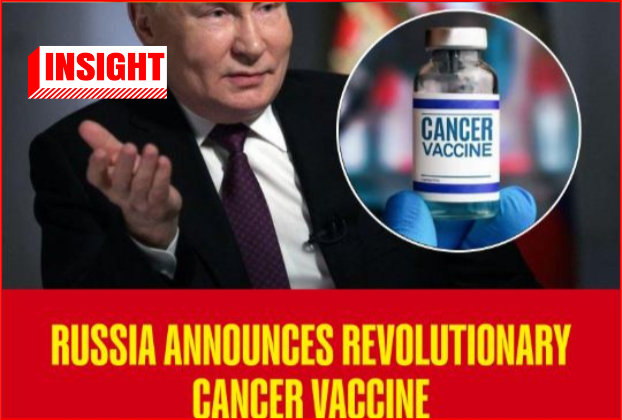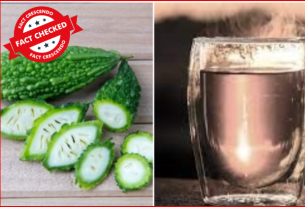Social media and mainstream media have been a buzz with reports of Russia developing a new cancer vaccine, which will be freely available to the public. This news has ignited the hopes of cancer patients and their loved ones. We decided to investigate.
Some social media posts related to this purported medical breakthrough are below.
Explanation
What the Russian Government, Health Authorities and Media Say
As per TASS, a major state-owned news agency in Russia, General Director of the Radiology Medical Research Center of the Russian Ministry of Health Andrey Kaprin has said that Russia has developed its mRNA vaccine against cancer, which will be distributed to patients free of charge. It is further noted that the vaccine was developed in collaboration with several research centres, and it is planned to be launched in general circulation in early 2025.
Earlier, Director of the Gamaleya National Research Center for Epidemiology and Microbiology Alexander Ginsburg told TASS that the vaccine’s pre-clinical trials had shown that it suppresses tumour development and potential metastases. TASS news report can be read here: Archived
We searched for scientific papers or clinical trials about this vaccine. However, we could not locate any such academic research paper. So, we decided to explore international news articles, features, and what scientists said about this vaccine.
What Experts Say About the New Vaccine!
Professor Kingston Mills, a prominent immunologist at Trinity College Dublin, Ireland, told the US-based magazine Newsweek that no academic paper is related to this news, so the public should be sceptical about it. He further stated that he didn’t want to say Russian scientists did not develop such a vaccine. He highlighted that the concept of a “cancer vaccine” is possible, but it`s difficult to comment on this issue without further evidence.
Prof. Mills further added that he does think what doesn’t make sense is a vaccine for cancer—as we all know, there are multiple cancers,” “So, is this a universal vaccine for all cancers? I’d be very sceptical of that. I think it couldn’t be.
“I don’t think even the Russians would claim that they have a vaccine to treat all cancers“, Kingston Mill stated to NewWeek.
Dr David Jenkinson, head of childhood cancer at medical research charity Life Arc, told Newsweek that several vaccines are already used to prevent cancers by targeting viruses that can sometimes cause cancer, such as HPV vaccination to prevent cervical cancers.
The Russian vaccine is an mRNA vaccine used as a personalised treatment against cancer. It helps the body’s immune system recognise cancerous cells as invasive.
This sort of treatment—mRNA vaccines used as a treatment against certain cancers—is currently the subject of hundreds of clinical trials worldwide, the scientists said, revolutionised by research pursuing COVID vaccines during the pandemic. More details about m-RNA cancer vaccines can be read here.
“mRNA vaccines make cells in the body produce a foreign protein. The immune system recognises these proteins, producing an immune response that kills any cells that produce these foreign proteins. As a personalised vaccine, the tumour from the individual is likely analysed first to see what proteins are mutated and mRNA is made to these. As such, the treatment will likely differ for each individual, ” Jenkinson explained to News Week. News Week article can be read here
mRNA Vaccines and How They Functioning
mRNA vaccines are not new to medical research. Experiments related to these vaccines have been ongoing in various parts of the world for decades. Successful COVID-19 mRNA vaccines triggered more scientists’ attention to developing mRNA vaccines that can work against cancer cells.
Over the past decades, scientists have learned how to engineer stable forms of mRNA and deliver these molecules to the body through vaccines. Once in the body, the mRNA instructs cells that take up the vaccine to produce proteins that may stimulate an immune response against these same proteins when present in intact viruses or tumour cells.
Dendritic cells, the immune system’s sentinels, are among the cells likely to take up mRNA from a vaccine. After taking up and translating the mRNA, dendritic cells present the resulting proteins, or antigens, to immune cells such as T cells, starting the immune response.
“Dendritic cells act as teachers, educating T cells so that they can search for and kill cancer cells or virus-infected cells,” depending on the antigen, said Karine Breckpot, PhD, of the Vrije Universiteit Brussel in Belgium, who studies mRNA vaccines.
What happened in the COVID-19 vaccination is mRNA included in the Pfizer-BioNTech and the Moderna coronavirus vaccines instruct cells to produce a version of the “spike” protein that studs the surface of SARS-CoV-2.The immune system sees the spike protein the dendritic cells present as foreign. It mobilises some immune cells to produce antibodies and other immune cells to fight off the apparent infection. Having been exposed to the spike protein free of the virus, the immune system is now prepared, or primed, to react strongly to a subsequent infection with the actual SARS-CoV-2 virus. More details about this can be read here.
Follow us and stay up to date with our latest fact checks.
Facebook | Twitter | Instagram | Google News | TikTok
Conclusion:
Our search found that despite Russian authorities’ official statements, the Russian research team has not published any research papers about clinical trials related to cancer vaccines. The concept of the m-RNA vaccine against cancer is not new, and scientists have been researching it for decades; especially after the successful results of the COVID-19 m-RNA vaccines, cancer researchers directed more attention towards developing m-RNA vaccines.







